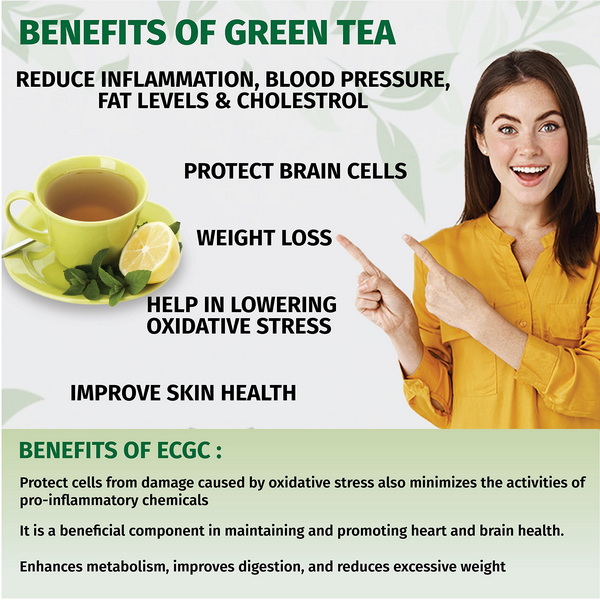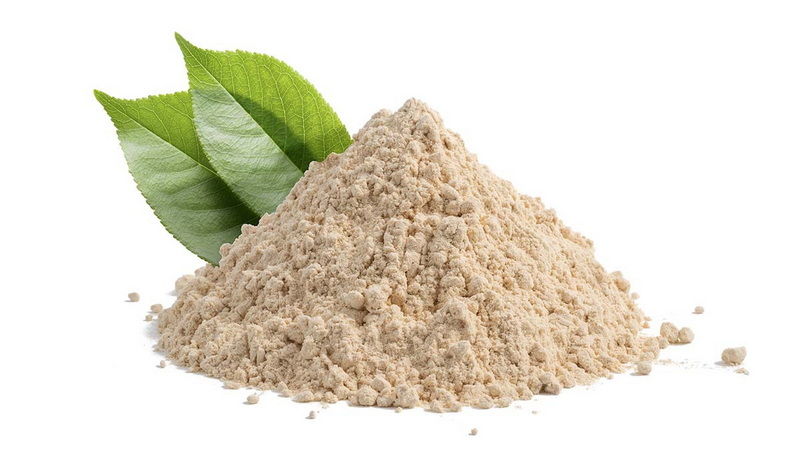Content Menu
● Understanding Green Tea Extract
>> Benefits of Green Tea Extract
● The Science Behind Green Tea Extract
● Potential Risks of Excessive Green Tea Extract Consumption
>> 1. Liver Damage
>> 2. Gastrointestinal Issues
>> 3. Caffeine Sensitivity
>> 4. Interference with Medications
>> 5. Risk of Toxicity
● Recommended Dosage
● How to Choose a Quality Green Tea Extract Supplement
● Lifestyle Considerations
● Additional Considerations
>> Individual Tolerance Levels
>> Pregnancy and Breastfeeding
>> Long-term Effects
● Conclusion
● FAQ
>> 1. What are the signs of liver damage from green tea extract?
>> 2. Can I take green tea extract if I am on medication?
>> 3. How much green tea extract is safe per day?
>> 4. Are there any interactions between green tea extract and caffeine?
>> 5. Is it better to drink green tea instead of taking supplements?
Green tea extract (GTE) has gained immense popularity as a dietary supplement due to its numerous health benefits, including weight loss, improved brain function, and enhanced antioxidant capacity. However, the question arises: Is too much green tea extract bad for you? This article delves into the potential risks associated with excessive consumption of green tea extract, its benefits, and how to consume it safely.

Understanding Green Tea Extract
Green tea extract is derived from the leaves of the *Camellia sinensis* plant. It is rich in polyphenols, particularly catechins, which are believed to be responsible for many of its health benefits. The most notable catechin is epigallocatechin gallate (EGCG), known for its powerful antioxidant properties.
Benefits of Green Tea Extract
Before discussing the potential downsides, it's essential to recognize the benefits of green tea extract:
- Antioxidant Properties: GTE is loaded with antioxidants that help combat oxidative stress in the body, reducing the risk of chronic diseases.
- Weight Loss Aid: It can enhance fat burning and boost metabolic rate, making it a popular ingredient in weight loss supplements.
- Heart Health: Regular consumption may lower cholesterol levels and improve heart health by reducing blood pressure and preventing arterial plaque buildup.
- Brain Function: GTE may enhance cognitive function and protect against neurodegenerative diseases due to its neuroprotective properties.
- Anti-Inflammatory Effects: The anti-inflammatory properties of EGCG can help reduce inflammation in the body, potentially lowering the risk of various diseases.
The Science Behind Green Tea Extract
The health benefits attributed to green tea extract primarily stem from its high concentration of catechins. Research has shown that these compounds can influence various biological processes:
- Metabolism Boost: Studies indicate that catechins can increase energy expenditure and fat oxidation. A study published in the *American Journal of Clinical Nutrition* found that participants who consumed GTE experienced a significant increase in metabolic rate compared to those who did not.
- Blood Sugar Regulation: Green tea extract may improve insulin sensitivity and regulate blood sugar levels. This effect is particularly beneficial for individuals with type 2 diabetes or those at risk of developing it.
- Cancer Prevention: Some studies suggest that the antioxidants in GTE may help protect against certain types of cancer by inhibiting tumor growth and reducing inflammation.
Potential Risks of Excessive Green Tea Extract Consumption
While moderate consumption of green tea extract is generally considered safe for most people, excessive intake can lead to several adverse effects:
1. Liver Damage
One of the most concerning risks associated with high doses of GTE is hepatotoxicity. Several case reports have linked high doses of green tea extract supplements to acute liver failure. The exact mechanism remains unclear, but it is believed that the concentrated catechins may cause oxidative stress and damage liver cells. Symptoms of liver damage include jaundice, dark urine, and abdominal pain.
2. Gastrointestinal Issues
High doses of green tea extract can lead to gastrointestinal discomfort. Common side effects include:
- Nausea
- Vomiting
- Diarrhea
- Abdominal pain
These symptoms are often exacerbated when GTE is consumed on an empty stomach. To mitigate these effects, it is advisable to take GTE with food.
3. Caffeine Sensitivity
Green tea extract contains caffeine, which can cause issues for those sensitive to stimulants. Excessive caffeine intake can lead to:
- Insomnia
- Anxiety
- Increased heart rate
- Jitters
People with existing cardiovascular conditions should be particularly cautious about their caffeine intake from GTE.
4. Interference with Medications
Green tea extract may interact with certain medications, including blood thinners and medications for high blood pressure. This interaction can either enhance or diminish the effectiveness of these drugs. For instance, GTE can inhibit enzymes that metabolize certain medications in the liver, leading to increased drug levels in the bloodstream.
5. Risk of Toxicity
High doses of GTE (typically over 800 mg per day) have been shown to be toxic in some studies. It's crucial to adhere to recommended dosages to avoid potential toxicity and adverse health effects.

Recommended Dosage
To reap the benefits while minimizing risks, it is advisable to limit green tea extract intake:
- General Recommendation: A daily intake of 250–500 mg of standardized green tea extract is often suggested.
- With Food: Taking GTE with meals can help reduce gastrointestinal side effects and improve absorption.
How to Choose a Quality Green Tea Extract Supplement
When selecting a green tea extract supplement, consider the following factors:
- Standardization: Look for products that specify the percentage of EGCG or other catechins present.
- Source: Choose supplements made from high-quality green tea leaves sourced from reputable regions known for their quality (e.g., Japan or China).
- Third-party Testing: Opt for brands that undergo third-party testing for purity and potency to ensure you are getting what you pay for without harmful contaminants.
Lifestyle Considerations
Incorporating green tea extract into your lifestyle should be part of a balanced diet and healthy lifestyle choices:
- Hydration: Ensure adequate hydration throughout the day as caffeine can have a diuretic effect.
- Balanced Diet: Complement your intake of GTE with a diet rich in fruits, vegetables, whole grains, lean proteins, and healthy fats.
- Regular Exercise: Physical activity enhances metabolic rates and complements the weight loss effects attributed to green tea extract.
Additional Considerations
To further understand how much green tea extract might be too much for you specifically, consider these additional points:
Individual Tolerance Levels
Everyone's body reacts differently to supplements based on various factors such as age, weight, metabolism, and overall health status. Some individuals may experience side effects at lower doses than others; thus personal tolerance should guide consumption levels.
Pregnancy and Breastfeeding
Pregnant or breastfeeding women should exercise caution when consuming green tea extracts due to potential risks associated with high caffeine intake and catechin levels affecting fetal development or milk production.
Long-term Effects
While short-term studies highlight many benefits associated with green tea extract consumption, long-term studies are still needed to fully understand any chronic effects or risks associated with prolonged use at high dosages.
By being informed about both the benefits and potential risks associated with high doses of green tea extract supplements, individuals can make educated decisions about their health choices while enjoying this popular supplement safely within recommended guidelines.
Conclusion
In summary, while green tea extract offers numerous health benefits, excessive consumption can lead to significant health risks, particularly liver damage and gastrointestinal issues. It is vital for individuals considering GTE supplementation to consult healthcare professionals before starting any new regimen, especially those with pre-existing health conditions or those taking other medications. Moderation is key; enjoying green tea or taking extracts within recommended guidelines allows individuals to harness its benefits while minimizing potential adverse effects.

FAQ
1. What are the signs of liver damage from green tea extract?
Signs include jaundice (yellowing of skin/eyes), dark urine, fatigue, nausea, and abdominal pain.
2. Can I take green tea extract if I am on medication?
Consult your healthcare provider before taking GTE if you are on medications, especially blood thinners or drugs affecting liver function.
3. How much green tea extract is safe per day?
A daily intake of 250–500 mg is generally considered safe for most individuals.
4. Are there any interactions between green tea extract and caffeine?
Yes, excessive caffeine from GTE can exacerbate symptoms in individuals sensitive to caffeine, leading to anxiety or insomnia.
5. Is it better to drink green tea instead of taking supplements?
Drinking moderate amounts of brewed green tea (3–5 cups per day) is generally safer than taking concentrated extracts since it contains lower levels of caffeine and catechins.






























